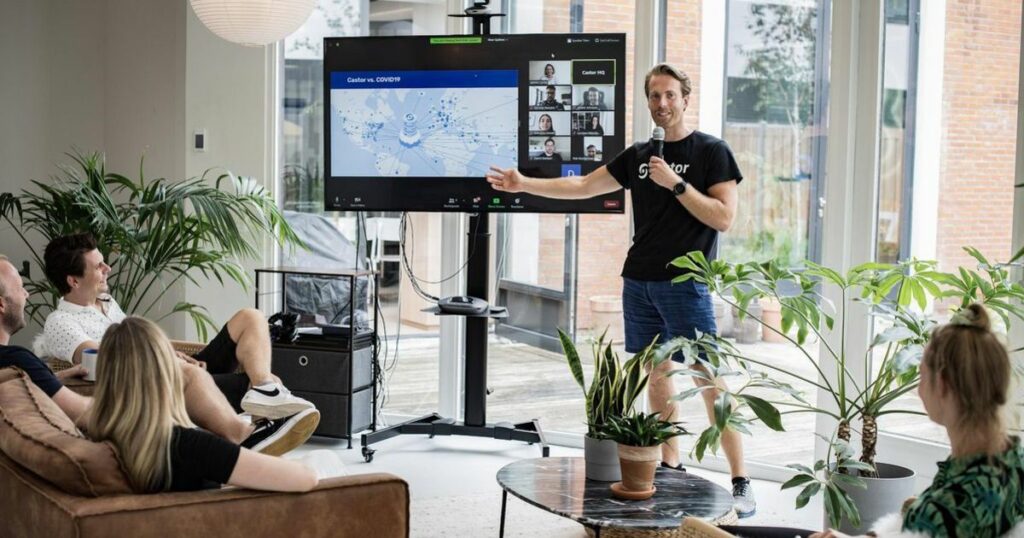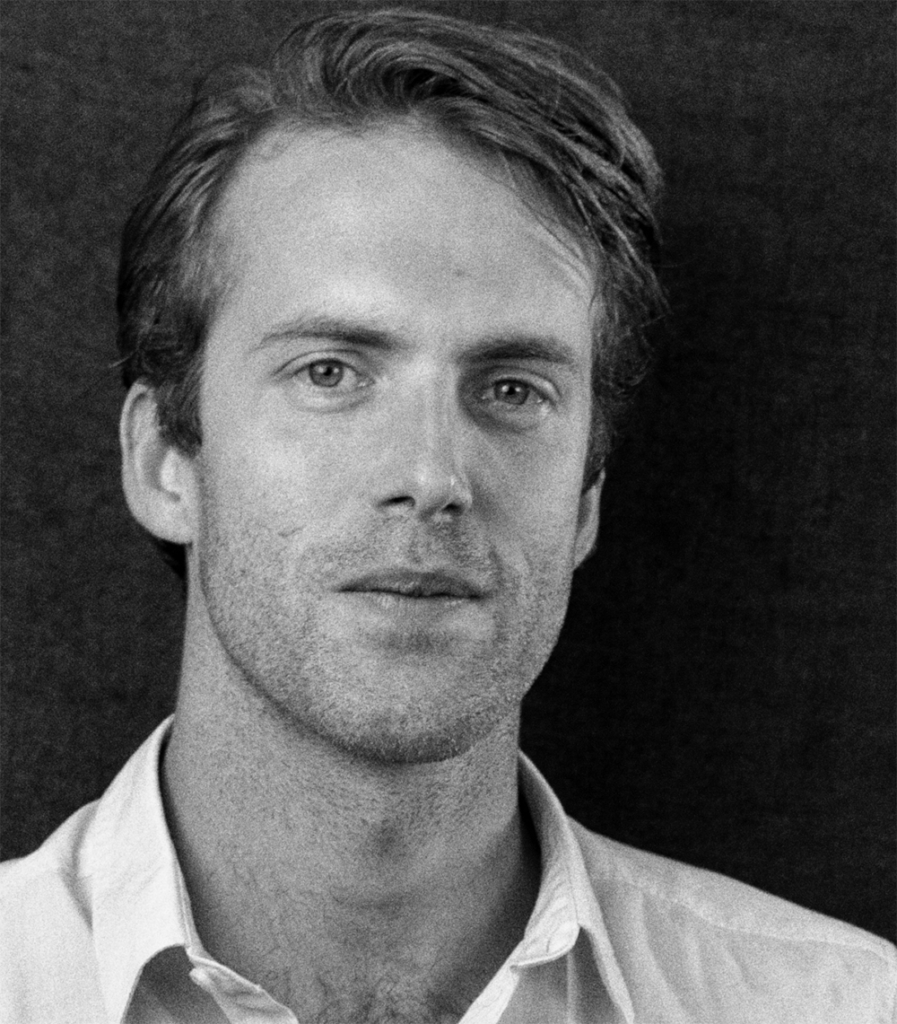
When he was studying for his PhD, Derk Arts’ thesis cover was a graphic showing a human head and a computer brain beginning to fuse.
This is indicative of where the man’s passions lie – medicine and technology – and as CEO of Castor, he is the visionary behind the one of the world’s leading decentralised clinical trial platforms.
The other thing he is truly passionate about is making a difference in the world and to people’s health. Castor is growing rapidly, which is allowing Arts to fulfill his ambition on an ever-increasing basis.
The company has raised $65 million in funding, including $45 million in Series B funding in July this year. It has supported over 7,000 clinical trials, and the employee count is set to tick up to 180 people by the end of the year.
The growth has been achieved to the backdrop the pandemic, and despite all of the obvious complications associated with the outbreak of COVID-19, Arts saw it as the perfect opportunity for the platform to have a positive impact.
“There are over 100 COVID-related scientific papers that cite Castor, because when the pandemic hit, we actually decided to give our technology away for free,” says Arts. “Because we wanted to support and a lot of research was needed.

“We had over 300 trials using our technology, and to really also be able to see and read through the scientific impact our initiative had is extremely fulfilling. At the same time as all of that was going on, we were also working with the World Health Organization [WHO used Castor for its Solidarity Trial, which included over 10,000 patients across 553 sites in 30 countries] and we also decided to make our platform available pro bono to them, to ensure that they could run some of the most important trials of the century.
“And I really love that. As a founder, I recognise we need to build the biggest and baddest commercial engine to rule the world of e-clinical but I also see doing what we did as the way to get to maximum impact. And so, for me, they go hand in hand. That’s really what it comes down to: I wouldn’t want to run a business that doesn’t try to make an impact.”
And that impact extends beyond what Castor did during the pandemic. The company has planted beehives on the roof of its Amsterdam office, because bees are vital to the global ecosystem and our survival as human beings. In a similar vein, Castor plants trees for every single study that goes live, paid or unpaid, of which there are now over 500.
“I think we need to think about the impact we’re having on the planet by giving humans more longevity and so that’s why I try to have a pretty holistic view on everything,” Arts says.
But the story of the Castor platform actually begins while Arts was still a student almost 10 years ago. He comes from a long line of doctors and was excited about the career path of becoming a practising physician. His passion for technology meant he had the skillset to work as a freelance developer as a means of paying his way through medical school. He built numerous websites and applications and he also began to explore ideas from an entrepreneurial standpoint, a side of him which has been part of his makeup since he was a boy.
Towards the end of his medical career, Arts was involved in some research and he found that there weren’t any platforms that were easy to use or readily affordable for academic researchers. His experience during that time cemented the vision for Castor, a company built to solve the biggest issues in clinical research: a lack of inclusivity, patient focus and impact of data.
With that in mind, Arts built the Castor platform for his own projects and began working towards his PhD, for which the thesis focused on ‘computerised decision support systems and improving medical decision making’. That same technology now enables sponsors worldwide to run patient-centric trials on a unified platform, helping them maximise the impact of research data on patient lives.
“It started as a one-day-a-week, a sort of a side gig, that I worked on Castor,” he says. “It quickly gained a lot of traction in the Netherlands. In 2016, I defended my thesis and after having three jobs for the past four years – Castor, my PhD and another data management job – I wanted to focus on the single thing so I jumped on the opportunity to become a full-time CEO of Castor.
"As a founder, I recognise we need to build the biggest and baddest commercial engine to rule the world of e-clinical but I also see doing what we did as the way to get to maximum impact."
“Mome “We started in academia and of course, we were supporting researchers with their research, often with very little or no budget. Quite honestly, that really made me feel like we were making an impact and also that I could have a bigger impact as a CEO of this company than I could as an individual medical doctor, because then you can only see so many patients in a week.“And so we continue on that journey, and we’ve been successful to an extent.”
The qualifier added at the end of that last comment shows the scope of ambition Arts has for Castor. He wants his company to help revolutionise his industry on a global scale and he believes one of the keys to that is for the medical community to use data more effectively.
According to research by Paul Glasziou and Iain Chalmers in 2009, and Arts still cites the figure, 85% of medical research data is never re-used. That staggering figure is due to poor data quality, a lack of standardisation and by the data being inaccessible to others. With that in mind, Castor developed its Electronic Data Capture technology to enable researchers to capture high-quality, standardised data at the source and make it available for re-use.
And this topic area is where Arts’ knowledge and passion for tech truly comes to the fore.
Data Centralisation
“I’m big on data centralisation,” he says. “I’m a very technical guy; ultimately, I love technology and I get very frustrated by inefficiencies. And one of the biggest sources of inefficiencies in life sciences and healthcare is a lack of standardisation, lack of interoperability. So I’ve always been pushing a machine-readable data agenda.
“When we had the COVID outbreak, I could already predict what was going to happen: everyone was going to scramble to run their own projects with their own sorts of data models, their own definitions of medical concepts for blood pressure, glucose, etc.
“What we tried to do, before everyone got started, was create a standard data model. Essentially, a number of forms you could download within three minutes, to launch your own observational study on COVID. We were taking definitions that the WHO had created and we turned them into an actionable piece of, let’s say, content in the form of forms that you can build, you could use to quickly launch a study on our platform, and you could build from that.
“It was very successful. We had a lot of studies using that. So that actually greatly enhanced interoperability between the datasets that came out of those projects.”
The most exciting of these became a huge national project in the Netherlands. An Amsterdam neurologist seeking a means to put his skills to better use during the pandemic did a study and built a registry where physicians began dedicating their time to manually process data from COVID patients and put it into a large database. Then, leveraging Castor’s publicly available API, they fired the data straight into a machine-learning model that tried to predict ICU occupancy.
"Ultimately, I love technology and I get very frustrated by inefficiencies. And one of the biggest sources of inefficiencies in life sciences and healthcare is a lack of standardisation"
Arts, an ever-keen technology collaborator, then made calls to Alteryx and Tableau to get them to donate their technology, which allowed the dashboards to be streamed live to hospitals across the country. This helped to estimate, in near real-time, what ICU occupancy would be in the coming days.
“We have a whole case study available on that service, which is called ‘COVID predict study’,” Arts says. “Alteryx and Tableau actually did separate case studies on it and have done a whole marketing campaign around it because they thought it was so awesome.
“I think it is a great example for how our vision for data centralisation and our vision of donating our technology really made a difference.”
Arts is proud of what he’s built and always has his eyes on the future, how to grow Castor and how to further his and the company’s impact on the world.
He is establishing a social impact committee which aims to get together influential people from all across the globe to help support underserved and under-resourced countries and communities with the means to independently conduct high quality, publishable research.
Castor will donate its technology as well as provide training on how to use it and on how to do scientific writing and then hopes to find a partner which will allow grants to be awarded to the locations being served.
"We are continuing to build out our enterprise sales engine so we work with the biggest brands in the industry"
With $15,000 in India and the technology and training available for free you can actually get a long way,” Arts says. “I think that’s beautiful, if you can continue to marry the commercial growth with increased impact, and find a way to integrate that into your business then your investors are also happy with that. I think it’s an interesting challenge, but also a great thing to do, because it does wonders for your brand.”
The recent $45 million of funding raised means it’s an exciting time for Castor, and Arts is clear about the immediate priorities for the company and that investment.
“First and foremost, on the commercial side, we need to really establish ourselves as a top player in the industry, also in the US, which is happening very rapidly,” he says. “We are continuing to build out our enterprise sales engine so we work with the biggest brands in the industry.
“As you can expect from a growth company, we’re going to allocate plenty of that money to our product and technology and we’re going to continue to invest in our data capabilities to help make research data reusable so that more researchers and more patients can benefit from high-quality data.
“The long-term vision for me is that we will be streaming machine-readable research data straight into prediction models that can make better individualised and biased predictions for patients over time. That’s a pretty complex endeavour. So that’s where a lot of the money is going to go.
“But at the same time, we’re also launching the social impact committee and making sure that it is firmly embedded in the company. We’re all doing all of that, while growing and maintaining our culture, and continue to take care of our people.”



